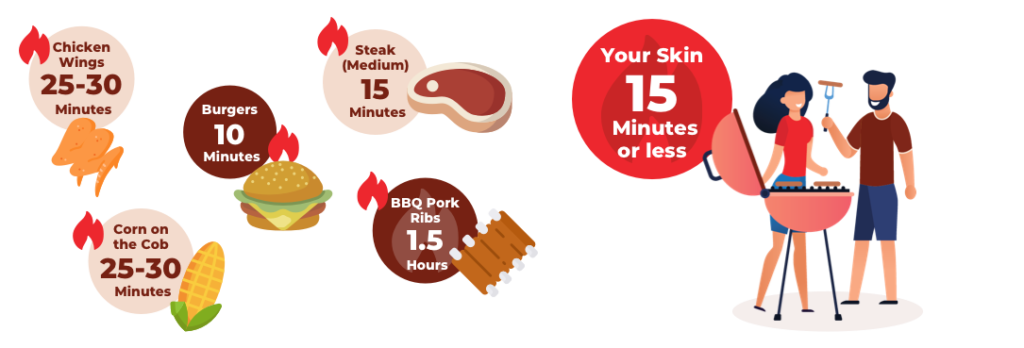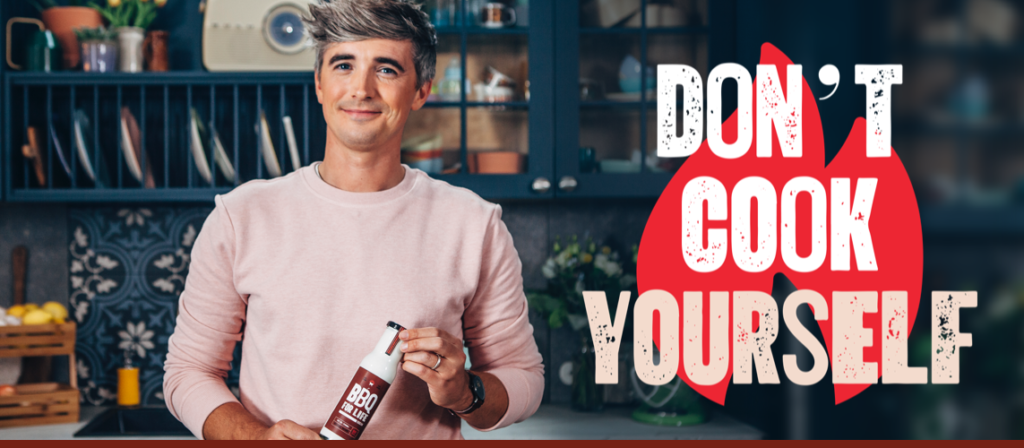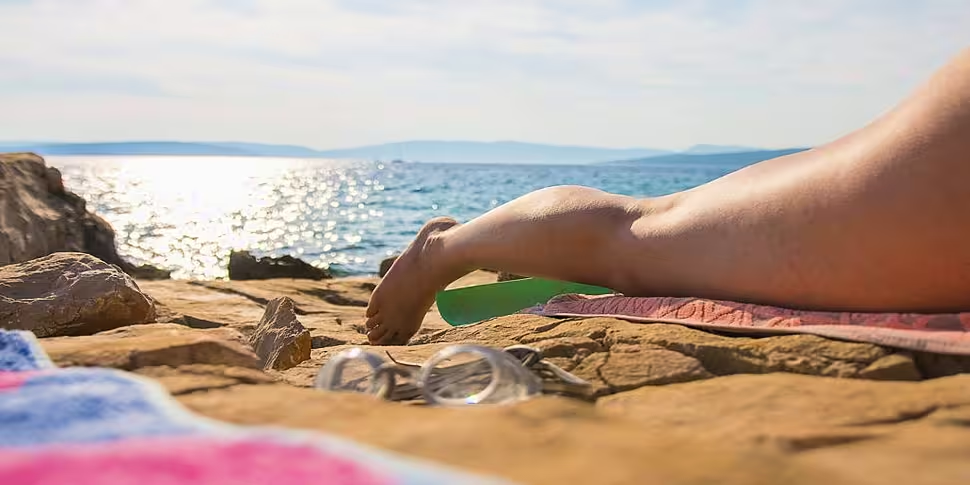A new campaign is being launched to remind people to be sun smart this summer.
The new 'Don't Cook Yourself' campaign by the Marie Keating Foundation is hoping to reduce the number of skin cancer diagnoses.
With over 11,000 cases annually, skin cancer is the most common form of cancer in Ireland.
This is twice the number compared to 10 years ago and is projected to more than double again by 2045.
Outdoor workers are seen as a high-risk group for the development of skin cancer, as they spend long periods outdoors.
They can be exposed to two to three times more UV radiation from the sun than indoor workers.
Liz Yeats, CEO, Marie Keating Foundation told Pat Kenny: "We've just launched a new campaign, highlighting the fact that essentially skin cancer is the most common type of cancer in Ireland.
"The number of cases are set to double by 2045, there are about 11,000 people diagnosed with skin caner every year - and about 1,100 people die from skin cancer unfortunately, which is one of the highest amongst the European Union.
"We're trying to get across the message that people need to be really sun smart when they're out in the garden this summer.
"Obviously everybody will be staycationing and we'll be out in our back gardens.
"So particularly if you're barbecuing, if you're outdoors for any other reason - even though it's Irish sun, that doesn't mean that we need to take it any less seriously.
"You can still get burnt under Irish sun through UV rays just as easily as you can in Portugal, or France or Spain".
 Source: Marie Keating Foundation
Source: Marie Keating FoundationShe said Irish people are generally at higher risk due to their skin types.
"Irish people tend to have much fairer skin which burns more easily and tans poorly, so we're at higher risk of UV damage.
"UV damage and skin cancer is entirely preventable if people just take the precautions.
"We're urging people through this 'Don't Cook Yourself' campaign to know the UV index.
"If it's above three - and on a day like today for example, it'll be above three - and you can burnt get very quickly, particularly in the hours between 11 and 3.
"The UV index goes from 3 to 8, but anytime between April and September it's higher than three - and the recommendation is that you protect yourself once it's above three.
"And you do that then by wearing sun screen: we recommend at least factor 30, but maybe factor 50 for children cause they obviously have more sensitive skin".
 The campaign is being fronted by chef Donal Skehan. Source: Marie Keating Foundation
The campaign is being fronted by chef Donal Skehan. Source: Marie Keating FoundationSiobhan McCarthy is a melanoma survivor.
She explained: "I wasn't a sunbed person, I would have been on a couple of foreign holidays - or even just the good weather in Ireland, just sitting out the back.
"I have fairly pale skin, so I definitely shouldn't be sitting out in it - but as you do when you go on holiday, lay by the pool all day long".
She said she noticed a new mole on her skin when she was 20-years-old and living in Toronto.
"I was on Skype one evening with my mam and she was like 'what's that on your arm?'...and she was like you need to go and get that checked out.
"I was 22 then when this conversation took place and she encouraged me to go the doctor straight away.
"And I didn't go straight away".
She said after she Googled about melanoma, she went to get it checked out.
"Then I got the phone call to say this is melanoma."
"For me, luckily, I was able to have the mole removed and then they do a wide local excision it's called - they remove a chunk of skin basically all around that mole.
"And then I had a couple of lymph nodes removed as well to have those checked out."
"Thankfully everything was all fine - there was no signs of melanoma then in my lymph nodes and the melanoma in my arm was after being removed and it got all clear margins all around that."
"It is preventable if you take that time to go and get something - if you're worried about something - to go and get it checked out".









